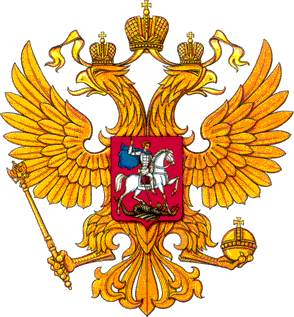 This is what I think of when the Russian military comes to mind. This is a MiG that basically fell out of the sky during an air show. That's what the entire Russian military is like right now. All of the machinery is left over from the USSR. Therefore, I don't tend to worry too much about Russian military supremacy.
This is what I think of when the Russian military comes to mind. This is a MiG that basically fell out of the sky during an air show. That's what the entire Russian military is like right now. All of the machinery is left over from the USSR. Therefore, I don't tend to worry too much about Russian military supremacy. This week's readings all had to do with Russian power in the Far East. Even if the Russian military has become a joke, they are still a great power. Between nuclear weapons and enough energy to really affect the world energy market, the world has to content with Russia. With that, I read the following:
Paradorn Rangsimaporn, Russia’s Debate on Military-Technological Cooperation with China: From Yeltsin to Putin”, Asian Survey, May/June 2006.
Elizabeth Wishnick, “Russia and the CIS in 2005: Promoting East Asian Oil Diplomacy, Containing Change in Central Asia”, Asian Survey, January/February 2006.
The overall thrust of the first two deals with Sino-Russian relations. They both basically say the same things. China and Russia are trying hard to work together, but suspicion of each other (and desires to maintain good relations with the US, while theoretically balancing against the US by helping each other) make it difficult.
In particular, the first article is about Russia's arm sales to China, and the conflict within Russia about it. I find it interesting that Russia sends more arms and equipment to China in sales than it buys for its own troops. (Again, the actual Russian military is ridiculous.) I find the argument that the items being sold are only good for fighting in the South China Sea, and thus Russia has nothing to worry about, patently ridiculous. The money China saves by buying these weapons is fungible, and could be redirected (easily!) to the kind of land-based systems that Russia fears. Even if China hasn't yet, there is the possibility.
The second article is all about Sino-Russian cooperation in Central Asia, mostly in attempting to keep the US out. Other than that, however, China and Russia actually have such divergent goals in Central Asia that I doubt they'll be able to cooperate for too long. Russia wants to keep Central Asian energy supplies going through Russia or Russian proxies, in order to maintain its grip on the energy markets. China wants to control that energy in order to maintain its own self-sufficiency. The two will be competing for some time.
The last article perhaps gives some of the most important points about Russia that should be kept in mind. Vladimir Milov, the former Deputy Minister of Energy in Russia, reminds us that the double-headed eagle is the long-standing symbol of Russia. 

This means that Russia is always looking in two different directions. This fits with everything I've heard about Russia from people who know the country well (which I'll admit I do not). It is too easy to pretend that Russia is a monolith, or that Russia never really changes, or that Russia is implacably against democracy or incapable of modernization, etc. Russian history is full of time periods when Russia was in the lead in modernizing, and plenty of time periods when it was far behind.
Opportunities to cooperate with Russia need to be pursued for this reason. Russia does best when it feels brought into the international system, and most often retreats from it when it feels abused or derided. In particular, we are starting to see possible splits within the Russian leadership (particularly Putin and Medvedev), and we need to be aware that it is not yet the autocracy we think.


